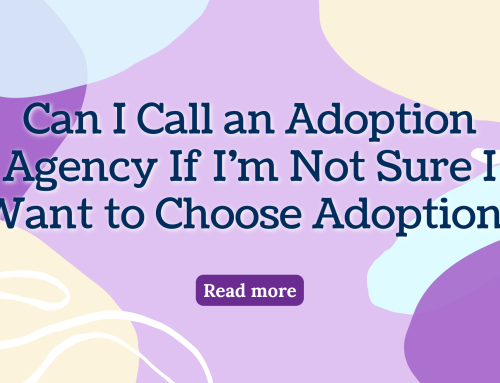Coming in behind only Bulgaria and Romania, the US has the highest teen birth rate of any developed nation in the world. In 2013, around 27 out of every 1,000 young women between 15 and 19 gave birth. While this number has been declining for the last 65 years, many teens are still surprised, shocked and scared to learn that they are pregnant.
With their bodies still developing, many young women facing an unplanned pregnancy wonder whether or not they face unique challenges that older women do not. Here’s the answer.
Can I Have A Healthy Pregnancy As A Teen?
Yes, in most cases, you can. With proper prenatal care, pregnant teens have healthy pregnancies and give birth to healthy babies every day.
But there are particular challenges facing pregnant teens.
Most are social in nature. In other words, there’s nothing wrong with your body; it’s not that you can’t produce enough hormones to support a growing baby: you can. With that being said, there are several physical risks associated with getting pregnant as a teen, and we’ll cover them in a bit.
Inadequate Prenatal Care
But the biggest challenge is getting proper prenatal care.
Pregnant women need to start receiving regular health check-ups as soon as possible. Teen pregnancy is most common in low-income communities, underserved areas where young mothers may have little access to health care. Other women struggle with disapproving family and friends, which can make it difficult to reach out for the assistance they need.
Whatever the reason, you need to get prenatal care. It’s critical for both your health and that of your baby. If you have a doctor, make an appointment immediately. If you don’t, we’ve made a series of guides to finding free or low-cost prenatal care in your area. Click on one of the links below to learn more:
- Pittsburgh Unplanned Pregnancy Resources
- Philadelphia Unplanned Pregnancy Resources
- Cherry Hill, NJ Unplanned Pregnancy Resources
- Connecticut Unplanned Pregnancy Resources
- Virginia Unplanned Pregnancy Resources
- New York City Unplanned Pregnancy Resources
- Wilmington, DE Unplanned Pregnancy Resources
If you don’t see your area in the list, contact our pregnancy counselors for personal assistance. It’s free and we’re here 24 / 7 to help.
Emotional Challenges
Other risks are psychological in nature. More often than not, pregnant teens face pressures from family and friends, to say nothing of the challenges presented just by carrying a baby. Your body is changing dramatically, hormones have run amok, and the future is less clear than ever. It’s totally normal to feel overwhelmed, stressed and terrified.
Without a support network, young mothers are far less likely to eat well, exercise properly and get the rest they need. All of which can adversely affect their baby’s development, as can increased stress and the hormones that create feelings of anxiety.
Postpartum Depression
According to the Centers for Disease Control, young mothers are more likely to experience postpartum depression (PPD), a form of depression that can be caused by giving birth and facing the pressures of raising a baby. While fairly common, affecting between 8% and 19% of all new mothers, postpartum depression is difficult.
PPD can be caused by numerous factors. After delivering a baby, your hormone levels drop dramatically. In reality, they’re normalizing, returning their levels before you got pregnant. But sometimes, your body isn’t ready to lose all the extra progesterone and estrogen you built up when you were pregnant. This change can lead to troubling thoughts, feelings of emptiness and anxiety.
Beyond that, teens who choose to parent are faced with many new responsibilities that can be overwhelming. Raising a baby is one of life’s toughest jobs, and it can be hard to focus and get the support you need.
Talk therapy and safe medications may be able to help.
Health Risks Of Teen Pregnancy
Now we’re going to turn to physical, or developmental, risks that are more prevalent for pregnant teens than older women. It’s important to remember that all of these problems can be avoided, or significantly reduced, by getting proper prenatal care.
Low Birth Weight
Over the course of 9 months, the average healthy female body should gain between 25 and 35 pounds. How do you know if you’re “healthy”? Click here to calculate your body mass index (BMI), the relationship between your height and weight. A BMI between 18.5 and 24.9 is considered healthy.
Pregnant teens are less likely to gain enough weight to support a developing baby. This can lead to delivering babies with low birth weight, who are at risk of having undeveloped organs and really serious health problems.
Premature Birth
The average, healthy pregnancy lasts about 40 weeks. Babies delivered before 37 weeks are considered “premature” and, like those with low birth weights, are at risk of serious complications.
Pregnant teens are more likely to deliver prematurely than older mothers. 14.5% of pregnant teens give birth to their babies before 37 weeks, while 11.9% of women between 20 and 29 do.
Pregnancy-Induced Hypertension
Hypertension, or high blood pressure, is more common in pregnant teens. When accompanied by increased protein levels in the urine, hypertension can become preeclampsia, an extremely serious pregnancy complication.
Preeclampsia is a leading cause of premature birth.
4 Steps To A Healthy Pregnancy
1. Get Prenatal Care
Call your doctor as soon as you think you are pregnant. If you don’t have one, follow the links we listed above to learn more about getting health care at low or no cost.
2. Eat Healthy
Talk to your doctor about the foods you should eat to support a growing baby. Start taking a good prenatal vitamin as soon as possible. Find one with at least 0.4 milligrams of folic acid, which can prevent many common birth defects.
3. Stop Bad Habits
Taking drugs, smoking and drinking can all be harmful to your baby, even more dangerous than they are to you. If you’re having trouble quitting, speak to your health care provider about programs and safe medications that may be able to help.
4. Build A Support Network
Carrying a baby will not be easy. If you want to have a healthy pregnancy, it will be even harder on your own. If your friends and family disapprove, or just aren’t helpful enough, look elsewhere.
Many of the State programs we mentioned above will be able to connect you with a social worker more than happy to help you sort out your feelings and hopes for the future. You can also call our counselors for free at any time for assistance.
For a more detailed look at ways to keep you and your baby healthy during pregnancy, visit our new guide here.





